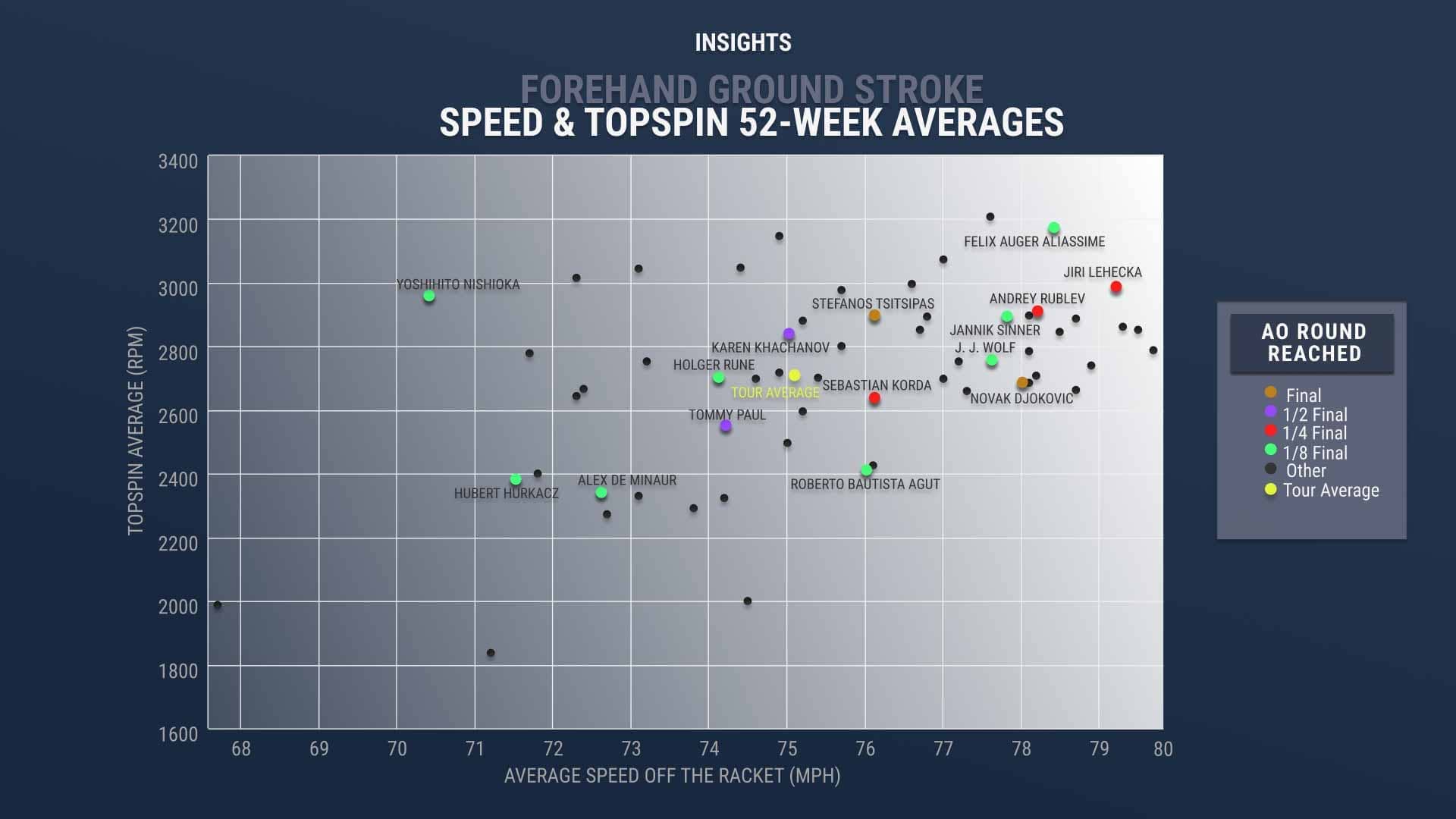Lehecka's Key To Success: Power. Lots Of Power.
Lehecka’s Key To Success: Power. Lots Of Power.
One of the breakthrough stars of the early part of the season has been Jiri Lehecka. The 2022 Next Gen ATP Finals runner-up made a big impact Down Under when he battled to the quarter-finals of the Australian Open with wins over stars including Borna Coric, Cameron Norrie and Felix Auger-Aliassime.
How has he stepped up against top-tier competition? Power. Lots of power.
According to statistics courtesy of Tennis Data Innovations and TennisViz, the Czech star already has one of the biggest forehands in the world. Over the past 52 weeks, Lehecka’s average forehand speed has been 79.2 miles per hour with an average spin rate of 2,992 revolutions per minute. That is a daunting combination of speed and spin.
It puts Lehecka in the same neighbourhood as renowned ball-bashers Felix Auger-Aliassime (78.4mph and 3,178rpm), Andrey Rublev (78.2mph and 2,917rpm) and Jannik Sinner (77.8mph and 2,901rpm). The ATP Tour average for forehand speed and spin are 75.1 miles per hour and 2,713 revolutions per minute, respectively.

Chart courtesy of Tennis Data Innovations and TennisViz, a joint venture between the ATP and ATP Media.
Tennis Data Innovations and TennisViz also produces a metric called ’Shot Quality’, which analyses each shot’s speed, spin, depth, width and the impact it has on the opponent. Lehecka’s 52-week average on the forehand side is 8, and it has improved to 8.3 over his past 10 matches.
Over the past year, his Shot Quality mark has been in the same range as Auger-Aliassime (8.1), Rublev (7.9) and Sinner (7.9). The Tour average is 7.2.
“When I met Jiri first time, he surprised me with the humility. He was such a nice person,” Lehecka’s coach, Michal Navratil, told ATPTour.com. “And then of course it was immediately the strength and the power of his shots that were in him.”
What is scarier for the rest of the Tour is that the 21-year-old Lehecka is still harnessing his power, according to his coach. When they first began working together, Lehecka used a different racquet brand and his string tension was 24/23 kilograms.
Lehecka has since experimented with different racquet and string setups to help control his game.
“He had a huge problems with the string,” Navratil said. “He was able to destroy the string in 10, 15 minutes. [It was] not even for the first ball change, so it was massive.”
The Czech has had his racquets strung increasingly tighter, helping to rein in his game.
“It’s funny. Last year was something extremely special,” Navratil said. “He was stringing last year in Australia 35/33. So in the beginning he was really like a beast with so much power. But finally he manages how to control it and everything. Still I think he cannot play on full percentage of his power because I think in this world there are not racquets he can go for full and he can control it.”
That has paid dividends in his rapid climb up the Pepperstone ATP Rankings. It was a year ago when he reached the Rotterdam semi-finals as a qualifier ranked No. 137. Now Lehecka, armed by one of the biggest forehands in the world, is No. 52 and climbing (career-high No. 37).
Lehecka begins his run at the Qatar ExxonMobil Open on Tuesday in Doha against qualifier Damir Dzumhur.


